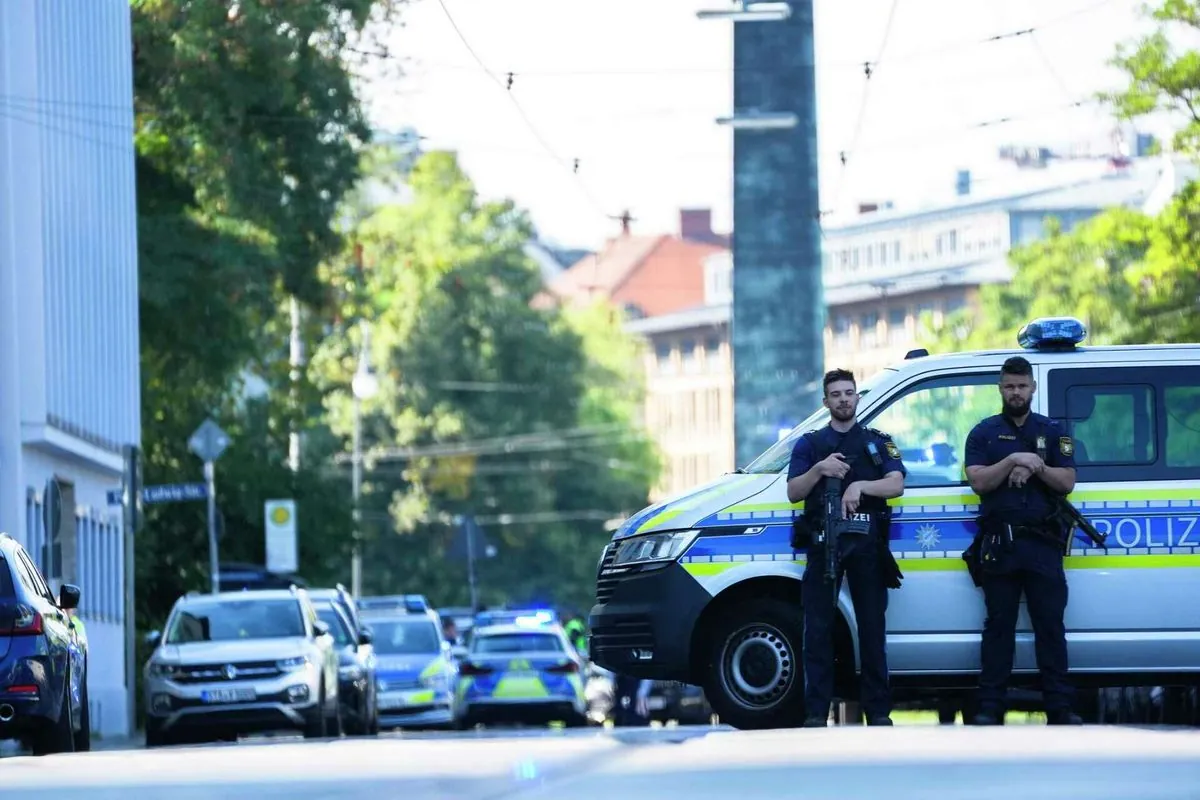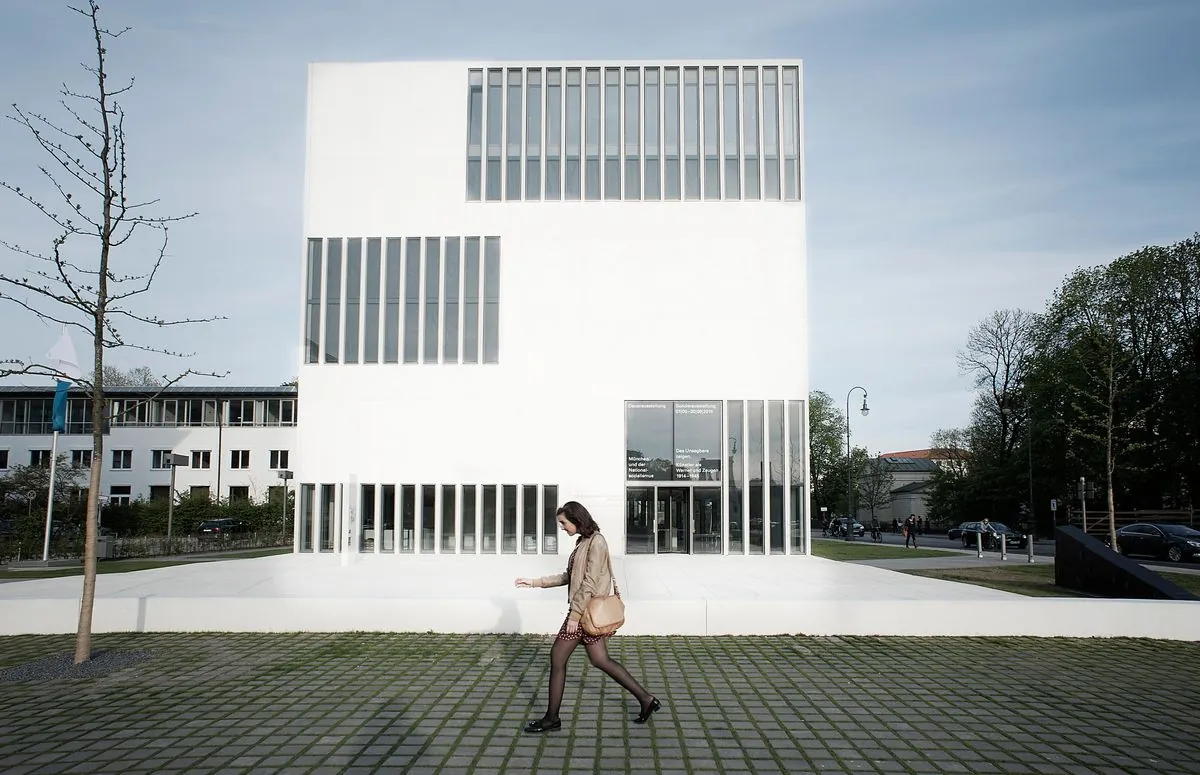Munich Gunman Targets Israeli Consulate and Nazi Museum in Deadly Rampage
An 18-year-old Austrian man attacked Munich's Israeli Consulate and a Nazi-era museum before being killed by police. The incident, possibly motivated by Islamist or antisemitic beliefs, is under investigation.

In a shocking incident that unfolded in Munich, Germany, an armed assailant targeted the Israeli Consulate and a museum dedicated to Nazi-era history before being fatally shot by law enforcement. The attack, which occurred on September 5, 2024, has raised concerns about potential Islamist or antisemitic motivations.
The perpetrator, an 18-year-old Austrian citizen with Bosnian heritage, initiated his assault by firing shots at the front of the museum focused on Nazi-era history. He then attempted to breach the Israeli Consulate's security perimeter, firing two shots at the building and damaging a window pane. The incident took place on the anniversary of the tragic 1972 Munich Olympics attack, which resulted in the deaths of 11 Israeli Olympic team members 52 years ago.

Law enforcement officials confronted the gunman, who was armed with a vintage Swiss military rifle equipped with a bayonet. Despite orders to surrender his weapon, the assailant opened fire on the officers, leading to a fatal shootout. Investigators later discovered that the firearm had been purchased just one day prior to the attack from an Austrian weapons collector for 400 euros, along with approximately 50 rounds of ammunition.
Gabriele Tilmann, a prosecutor involved in the case, stated that the working hypothesis suggests the attacker "acted out of Islamist or antisemitic motivation." However, authorities have yet to uncover any specific message that would definitively establish the motive. While it appears the gunman acted alone, investigations are ongoing to determine if he had connections to any extremist networks.
The suspect's background reveals previous encounters with Austrian authorities. In February 2023, about 1.5 years ago, he came to their attention following a "dangerous threat" against fellow students and alleged involvement with a terror organization. Concerns about religious radicalization and interest in explosives and weapons were noted, but an investigation was closed in April 2023. A weapons ban was subsequently imposed on the individual until at least 2028.
Franz Ruf, the public security director at Austria's interior ministry, disclosed that a search of the suspect's residence yielded unspecified "data carriers" but no weapons or Islamic State group propaganda. The assailant had recently started a new job on September 2, 2024, just four days before the attack, and was reported missing by his parents an hour after the shooting occurred.
This incident highlights the ongoing challenges faced by security agencies in combating lone-wolf attacks and online radicalization. It also underscores the importance of international cooperation in addressing extremism and terrorism, particularly in regions with complex historical and geopolitical dynamics like Central Europe and the Balkans.
As the investigation continues, authorities are working diligently to piece together the events leading up to this tragic incident and to prevent similar occurrences in the future. The attack serves as a stark reminder of the persistent threats faced by diplomatic missions and culturally significant sites, emphasizing the need for continued vigilance and robust security measures.


































